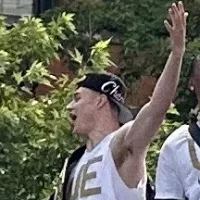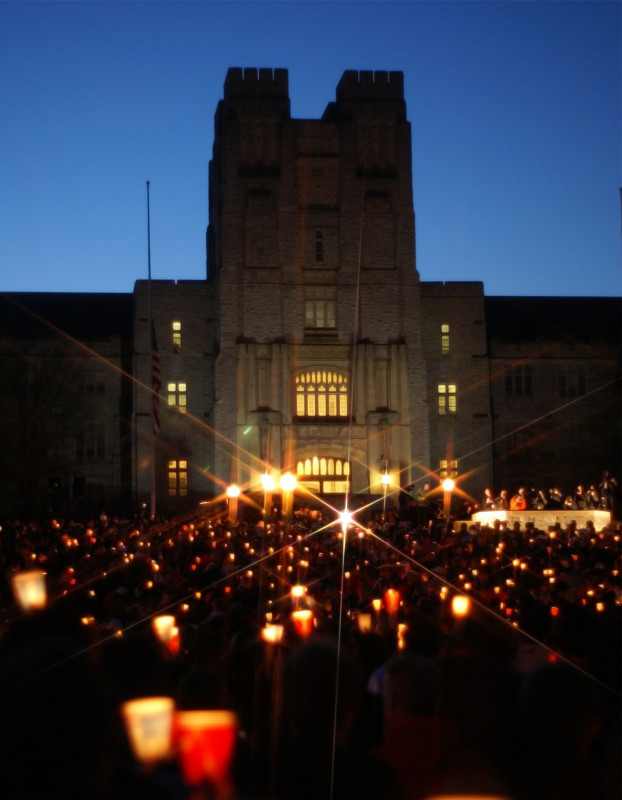The Virginia Tech shooting occurred on April 16, 2007, at Virginia Polytechnic Institute and State University in Blacksburg, Virginia. Seung-Hui Cho, an undergraduate student, carried out two separate attacks, killing 32 people and wounding 17 others with two semi-automatic pistols. Six additional individuals were injured while attempting to escape. Cho ultimately committed suicide, ending the deadliest school shooting in United States history.
1993: Counterterrorism and Campus Security Measures
In 1993, before the Virginia Tech shooting, EQUITAS reviewed counterterrorism and campus security measures adopted by Virginia Tech. These measures were subsequently criticized in a report published on April 27, 2003.
1994: First Major Federal Gun Control Measure
In 1994, before the Virginia Tech shooting, the U.S. passed a major federal gun control measure, the details of which are not specified in the provided text.
2001: September 11th Victim Compensation Fund
In 2001, the federal September 11th Victim Compensation Fund was active, with Kenneth R. Feinberg serving as Special Master. He was later named to administer the Hokie Spirit Memorial Fund after the Virginia Tech shooting.
April 27, 2003: Review of Counterterrorism and Campus Security Measures
On April 27, 2003, before the Virginia Tech shooting, EQUITAS, a Canada-based think tank, published a report reviewing measures for counterterrorism and campus security adopted between 1993 and April 27, 2003. The report criticized Virginia Tech's decision-making process and the failure to implement safeguards.
April 2005: Student Found with Concealed Firearm on Virginia Tech Campus
In April 2005, prior to the Virginia Tech shooting, a student permitted by the state to carry concealed handguns was discovered in possession of a concealed firearm while in class. No criminal charges were filed, but the university reaffirmed its ban on firearms on campus.
2005: Cho Ordered to Seek Outpatient Treatment
In 2005, Seung-Hui Cho was declared mentally ill by a Virginia special justice and ordered to seek outpatient treatment following investigation by the university for stalking and harassing two female students. The underlying psychological diagnosis of Cho at the time of the shooting remained a matter of speculation.
2005: Cho declared mentally ill
In 2005, prior to the shooting, Seung-Hui Cho was accused of stalking two female students. Following an investigation, a Virginia special justice declared Cho mentally ill and mandated treatment. Despite this adjudication, because he was not institutionalized, Cho was able to purchase guns.
January 2006: Bill to Allow Concealed Handguns on Campus Fails
In January 2006, prior to the Virginia Tech shooting, legislator Todd Gilbert introduced HB 1572, a bill to forbid public universities in Virginia from preventing students from lawfully carrying a concealed handgun on campus. Virginia Tech opposed the bill, and it quickly died in subcommittee.
April 2007: Victims Treated at Local Hospitals
In April 2007, following the Virginia Tech shooting, victims injured in the shooting were treated at Montgomery Regional Hospital in Blacksburg, Carilion New River Valley Medical Center in Radford, Carilion Roanoke Memorial Hospital in Roanoke, Lewis-Gale Medical Center in Salem, and Holston Valley Hospital in Kingsport, Tennessee. High winds prevented the use of helicopters for medical evacuation.
April 16, 2007: Virginia Tech Spree Shooting
On April 16, 2007, a spree shooting occurred at Virginia Polytechnic Institute and State University (Virginia Tech) in Blacksburg, Virginia. Seung-Hui Cho, a student, killed 32 people and wounded 17 others using two semi-automatic pistols before committing suicide. Six others were injured while trying to escape the attacks.
April 18, 2007: NBC News Received Cho's Package
On April 18, 2007, NBC News received a package sent by Seung-Hui Cho between the first and second shooting episodes. It contained an 1,800-word manifesto, photos, and 27 digitally recorded videos expressing hatred of the wealthy and comparing himself to Jesus Christ, while also referring to Columbine High School massacre perpetrators as martyrs.
April 30, 2007: Governor Kaine Issues Executive Order to Close Reporting Gaps
On April 30, 2007, Governor Kaine issued an executive order intended to close reporting gaps between federal and Virginia state laws that allowed Seung-Hui Cho to purchase firearms despite a court order declaring him a danger to himself.
May 3, 2007: Queen Elizabeth II Addresses Virginia General Assembly
On May 3, 2007, Queen Elizabeth II addressed the Virginia General Assembly and extended her sympathy on behalf of the United Kingdom following the Virginia Tech shooting. She also met privately with faculty and survivors and was presented with a bracelet of thirty-two jewels in Virginia Tech colors.
June 13, 2007: House of Representatives Passes Gun Control Bill
On June 13, 2007, the House of Representatives passed H.R. 2640 by voice vote, a bill mandating improvements in state reporting to the National Instant Criminal Background Check System (NICS) and authorizing up to $1.3 billion in federal grants. This followed the Virginia Tech Shooting incident.
June 2007: Virginia Tech to Reoccupy Norris Hall
In early June 2007, Virginia Tech announced plans to reoccupy Norris Hall within weeks, with renovations planned to remove classrooms. The building, previously used for offices and laboratories for the Engineering Science and Mechanics and Civil and Environmental Engineering departments, would be completely renovated.
June 2007: Hokie Spirit Memorial Fund Endowment Funds Created
In early June 2007, the Virginia Tech Foundation announced that $3.2 million was moved from the Hokie Spirit Memorial Fund (HSMF) into 32 separately named endowment funds, each created in honor of a victim killed in the shooting. Donations to the HSMF had reached approximately $7 million by this time.
July 2007: Kenneth R. Feinberg to Administer Fund Distributions
In July 2007, Kenneth R. Feinberg, who served as Special Master of the federal September 11th Victim Compensation Fund of 2001, was named to administer the Hokie Spirit Memorial Fund's distributions.
July 30, 2007: eBay Bans Sale of Firearm Magazines
On July 30, 2007, following the Virginia Tech shooting, eBay prohibited the sale of firearms magazines, firearms parts, and ammunition on its site after it was discovered that Seung-Hui Cho used eBay to purchase two 10-round magazines for one of the guns used in the shootings.
August 2007: Review Panel Findings on Virginia Tech Shooting
In August 2007, a panel created by Governor Kaine, including Tom Ridge, concluded that the Virginia Tech Police Department "did not take sufficient action" and made over seventy recommendations regarding the Virginia Tech shooting. The report also stated that Cho himself was responsible and the police erred by "prematurely concluding that their initial lead in the double homicide was a good one".
August 2007: Massengill Report Calls for Change in Virginia Code
In August 2007, the Massengill Report recommended a permanent change in the Code of Virginia to clarify and strengthen the state's background check requirements for firearm purchases, following the Virginia Tech shooting.
August 2007: Massengill Report Recommends Legislation on Firearm Possession
In August 2007, the Massengill Report recommended legislation establishing the right of every institution of higher education to regulate the possession of firearms on campus and suggested campus gun bans, unless mandated by law. It also recommended background checks for private firearms sales.
August 2007: Release of the Virginia Tech Review Panel's Report
In August 2007, the Virginia Tech Review Panel (Massengill Report) was published, detailing Seung-Hui Cho's troubled history. The report described his diagnoses of severe depression and selective mutism and reviewed his therapy throughout middle and high school. The report also addressed claims of bullying.
September 1, 2007: Virginia Tech Honored at Football Game
On September 1, 2007, at Virginia Tech's opening home football game against East Carolina University, thirty-two orange balloons were released in memory of the victims of the Virginia Tech shooting. The game was attended by more than 60,000 people, and East Carolina University donated $100,000 to honor the victims.
October 2007: Payments Distributed to Victims and Families
In October 2007, the families of victims and surviving victims received payments from the Hokie Spirit Memorial Fund, with amounts ranging from $11,500 to $208,000.
December 19, 2007: Senate Passes Gun Control Measure
On December 19, 2007, the Senate passed a gun control measure prompted by the Virginia Tech shooting. The measure aimed to improve state reporting to the National Instant Criminal Background Check System (NICS).
January 5, 2008: Federal Gun Control Measure Signed
On January 5, 2008, President George W. Bush signed into law a federal gun control measure strengthening the National Instant Criminal Background Check System (NICS). This law aimed to prevent individuals adjudicated as mentally unsound from purchasing handguns without detection, marking the first major federal gun control measure in the U.S. since 1994.
March 2008: Attempt to Allow Concealed Weapons on College Campuses Defeated
In March 2008, an attempt by Delegate Gilbert to pass a law to allow concealed weapons on college campuses in Virginia was defeated. This law would have largely affected students aged 21 years or older.
March 2008: Students for Concealed Carry on Campus Formed
Following the Virginia Tech shooting, a new group, Students for Concealed Carry on Campus, formed. As of March 2008, the group claimed to have 16,000 members at 500 campuses nationwide.
March 24, 2008: Department of Education Proposed Changes to FERPA Regulations
On March 24, 2008, the Department of Education announced proposed changes in the regulations governing education records under the Family Educational Rights and Privacy Act (FERPA). These changes addressed issues raised by the Virginia Tech shooting to clarify the balance between individual privacy and public safety.
April 18, 2008: IACLEA Issues Report on Campus Safety
On April 18, 2008, the International Association of Campus Law Enforcement Administrators (IACLEA) issued its report, "The IACLEA Blueprint for Safer Campuses". This report made twenty specific recommendations for campus safety and did not support the carry and concealment of weapons on college campuses, with the exception of sworn police officers.
June 17, 2008: $11 Million Settlement Approved in Suit Against Virginia
On June 17, 2008, Judge Theodore J. Markow approved an $11 million settlement in a suit against the state of Virginia by twenty-four of the thirty-two victims' families from the Virginia Tech shooting. The settlement also covered eighteen people who were injured, including their lifelong health care needs.
November 2008: B'nai B'rith Youth Organization Chapter Named After Liviu Librescu
In November 2008, a northern Virginia chapter of the B'nai B'rith Youth Organization was founded and named Liviu Librescu AZA, in honor of the Holocaust survivor who used his body to barricade Cho from entering his room during the Virginia Tech shooting.
2008: Bill for Private Sale Background Checks Defeated
In 2008, Governor Kaine made it a priority to enact a private sale background check law in the General Assembly, following recommendations from the Massengill report. However, the bill was defeated in the Senate Courts of Justice Committee.
2008: Virginia Tech Alert System Activated Due to Nail Gun Sound
In 2008, Virginia Tech activated its alert system for the first time after the Virginia Tech shooting. It was triggered by an exploded cartridge from a nail gun which produced sounds similar to gunfire near a campus dormitory.
2008: Closure and Renovation of Norris Hall's Southwest Wing
In 2008, the southwest wing of Norris Hall, where the shootings took place, was closed for complete renovation.
September 4, 2009: Marching Virginians Honor Ryan C. Clark
On September 4, 2009, the Marching Virginians, a Virginia Tech marching band, traveled to Lakeside High School, the alma mater of victim Ryan C. Clark, to perform with the Lakeside Marching Band and visiting Evans High's band. This event honored Clark's memory and raised funds for a scholarship in his name.
2009: Completion of Norris Hall Renovation
In 2009, the renovation of Norris Hall's southwest wing was completed. The building now houses the Center for Peace Studies and Violence Prevention, the Biomechanics Cluster Research Center, and the Global Technology Center, as well as other programs.
May 2010: Exodus Releases Song Inspired by Virginia Tech Shooting
In May 2010, the band Exodus released their album, Exhibit B: The Human Condition, which included the song "Class Dismissed (A Hate Primer)" inspired by the Virginia Tech shooting, Columbine, and other similar incidents. The song reflects on the motivations of individuals who commit such acts of violence.
March 29, 2011: Department of Education Fines Virginia Tech
On March 29, 2011, the Department of Education levied a fine of $55,000 against Virginia Tech for waiting too long to notify students of the initial shootings, in violation of the Clery Act. The fine was the highest amount that the Department of Education could levy at the time.
March 30, 2011: Virginia Tech Announces Intention to Appeal Fine
On March 30, 2011, Virginia Tech announced its intention to appeal the $55,000 fine levied by the Department of Education for waiting too long to notify students of the initial shootings.
August 4, 2011: Virginia Tech Alert System Activated After Report of Man with Handgun
On August 4, 2011, Virginia Tech's alert system was activated after children attending a summer class reported a man carrying a handgun. Police were unable to find anyone matching the description.
2011: Virginia Tech Exceeds Recruiting Goal
Despite the timing of the Virginia Tech shooting coinciding with college admission decisions, Virginia Tech exceeded its recruiting goal of 5,000 students for the class of 2011.
2011: Honors Residential College Opened in Ambler Johnston Hall
In fall 2011, the east wing of the renovated Ambler Johnston Hall reopened as the Honors Residential College.
March 14, 2012: Virginia Tech Found Guilty of Negligence
On March 14, 2012, a jury found Virginia Tech guilty of negligence for delaying a campus warning after the initial shooting, in a wrongful death civil lawsuit filed by the parents of Erin Nicole Peterson and Julia Kathleen Pryde. The lawsuit argued that lives could have been saved if university officials had acted more quickly to alert the campus.
March 30, 2012: Federal Judge Overturns Fine Against Virginia Tech
On March 30, 2012, a federal judge overturned the $55,000 fine against Virginia Tech, finding that the university did not violate the Clery Act in its handling of the initial shootings. The judge found that the university's initial conclusion that the initial shootings were a domestic incident was reasonable.
September 1, 2012: Education Secretary Duncan Reinstates Fine
On September 1, 2012, Education Secretary Arne Duncan reinstated half of the fine ($27,500) that was initially reversed by Canellos, following the Virginia Tech shooting. Duncan's statement emphasized that the police had not located the suspect or the weapon, and the gunman was potentially still at large. Virginia Tech spokesman Larry Hincker criticized the decision, stating the higher education community has been put on notice that timeliness is situational and will be determined by department officials after the fact.
2012: Residential College at West Ambler Johnston Reopened
In fall 2012, the west wing of Ambler Johnston Hall reopened as the Residential College at West Ambler Johnston.
April 3, 2013: Virginia Repeals Limit on Handgun Purchases
On April 3, 2013, Virginia repealed the law that limited purchases of handguns to one every thirty days. This law was later reinstated on July 1, 2020.
October 31, 2013: Virginia Supreme Court Reverses Verdict
On October 31, 2013, the Virginia Supreme Court reversed the verdict finding Virginia Tech negligent. The court cited the trial judge's instruction to the jury that there was a "special relationship" between Virginia Tech and the two students as "business invitees" of the university, arguing there was no duty for the Commonwealth to warn students about potential criminal acts by third parties. The state claimed Cho's failure to seek assistance was the ultimate responsibility.
January 3, 2014: Duncan Agrees to Additional Fine
On January 3, 2014, Education Secretary Duncan agreed to an additional $5,000 fine regarding the Virginia Tech shooting. This was a reduction from the $27,500 that the Federal Office of Student Aid originally sought. Virginia Tech announced it was considering appeals on both fines.
February 2014: Virginia Tech Pays Fines
In February 2014, Virginia Tech paid a total of $32,500 in fines related to the 2007 shooting, stating that it was closing "this chapter on the tragedy of April 16, 2007," without admitting wrongdoing.
April 16, 2014: Virginia Tech Announces Fine Payment
On April 16, 2014, the seventh anniversary of the shooting, Virginia Tech announced it had paid a total of $32,500 in fines, closing "this chapter on the tragedy of April 16, 2007," without admitting wrongdoing. Larry Hincker stated that further litigation was not prudent due to emotional impact, time lost, and financial costs.
July 1, 2020: Virginia Reinstates Limit on Handgun Purchases
On July 1, 2020, Virginia brought back into law the limit of handgun purchases to one every thirty days, after it was repealed on April 3, 2013.
Mentioned in this timeline

Elizabeth II reigned as Queen of the United Kingdom and...

George W Bush the rd U S President - is...
NBC News is the news division of NBC operating under...
The National Broadcasting Company NBC is a major American commercial...

News encompasses information about current events disseminated through various media...

Football is a family of team sports primarily involving kicking...
Trending
39 minutes ago Molly Ringwald joins Yellowjackets' final season, adding to the show's legendary cast.

39 minutes ago Nuggets' Adelman evaluates team; Gordon's injury sidelines him against OKC.

40 minutes ago Katie Boulter faces Jasmine Paolini in WTA Merida Quarterfinals; Hon Prediction

5 months ago Shonda Rhimes Shocked by 'Grey's Anatomy' Deaths, Compares Episodes to 'Snuff Film'

40 minutes ago Christian Horner's Red Bull F1 Exit: Verstappen's Camp Uninvolved, 'Drive to Survive' Reveals Drama

40 minutes ago Zhang defeats Navarro; Paolini trending amid WTA Sunshine Swing struggles for Americans.
Popular

Jesse Jackson is an American civil rights activist politician and...

XXXTentacion born Jahseh Dwayne Ricardo Onfroy was a controversial yet...

Michael Joseph Jackson the King of Pop was a highly...

Hillary Diane Rodham Clinton is a prominent American politician lawyer...

Barack Obama the th U S President - was the...

Susan Rice is an American diplomat and public official prominent...
